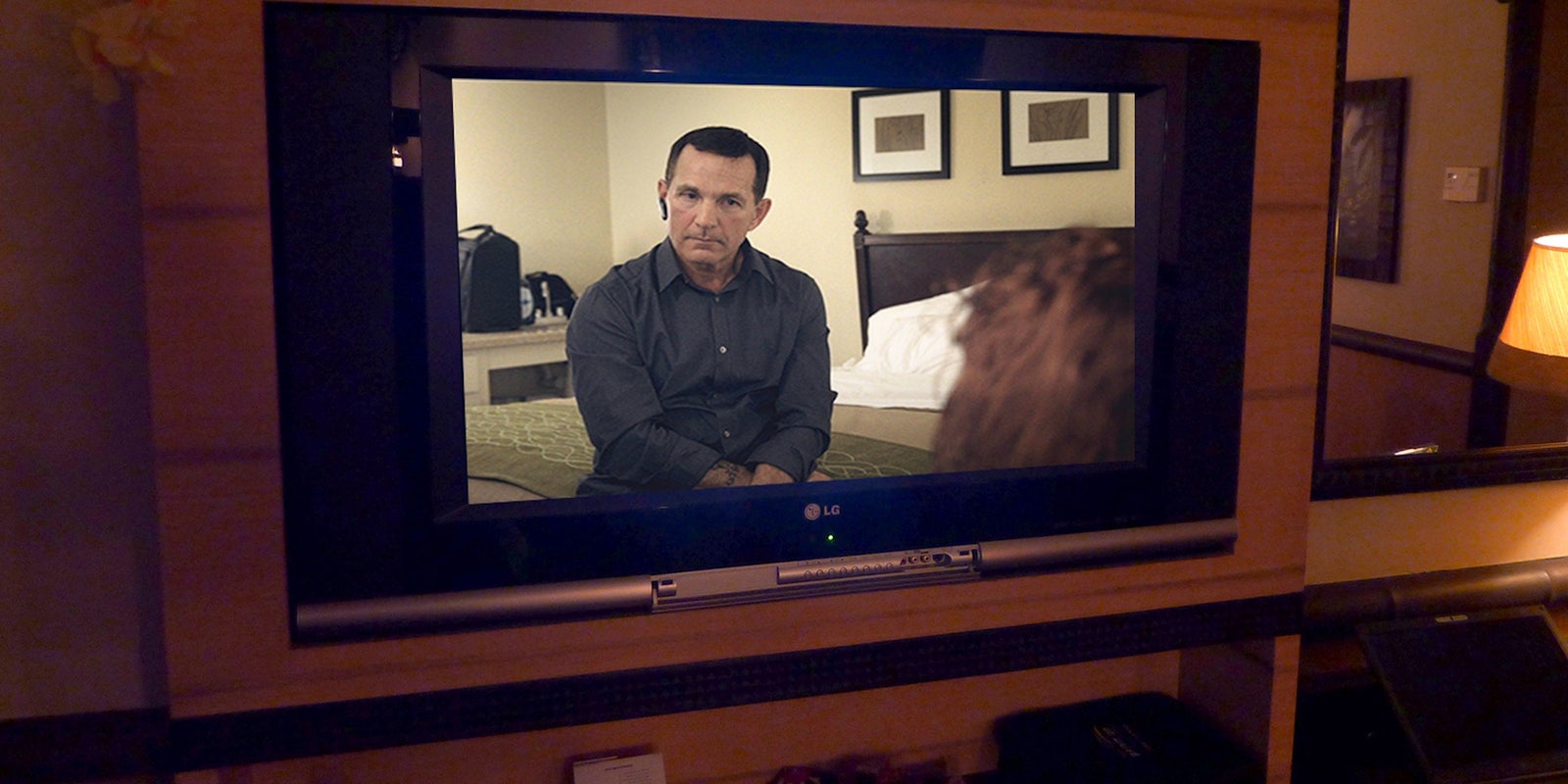All sex workers are trafficking victims who desperately want out of the industry.
That’s the premise, anyway, of the new A&E show 8 Minutes, which is slated to premiere April 2. The show follows vigilante pastor (and former cop) Kevin Brown as he sets up dates with sex workers, only to ambush them with attempts at rescue instead of payment—all filmed, hidden camera-style.
The new series has been called “awful” by the Daily Beast, while VICE referred to Brown and the series creators as “manipulators seeking out women for their own gain.” A Change.org petition asking that the show not be aired because it is “offensive and intrusive” garnered just under 2,000 signatures. And in 2013, when the Los Angeles Times profiled Brown’s rescue ministry in an article that inspired the show, even local law enforcement condemned his methods.
“It’s not a method we endorse,” Santa Ana Police Department spokesperson Anthony Bertagna told the Times. “It’s very dangerous.”
But none of this criticism has deterred A&E from airing the show since it was first announced last December. The network’s public relations spokesperson did not respond to multiple phone and email requests for comment.
On Monday, about two dozen nonprofits and other groups that work with trafficking victims and sex workers signed a letter demanding a meeting with Tom Forman, the producer of 8 Minutes.
“The tactics of Kevin Brown and 8 Minutes mislead the public and threaten the rights and safety of sex workers and survivors of human trafficking. In addition, they exploit the lives and images of those in the sex trade, thereby exploiting people from a marginalized and stigmatized population,” reads the coalition letter.
Kate D’Adamo, policy advocate at New York’s Sex Workers Project, told the Daily Dot that following the network’s announcement of the project, many activists thought the network would cancel 8 Minutes. When A&E decided to move forward with the project, the letter was drafted as a last resort.
“The show is really predicated on public shaming and the entertainment value,” D’Adamo said. “If this was done in a respectful way, you wouldn’t expose someone to mass media in the midst of criminal activity.”
While Brown claims to have been running his rescue operation for over 20 years, the producers of 8 Minutes don’t exactly have a background in sex worker issues. Head producer Tom Forman’s background includes lighthearted reality fare like The Great Food Truck Race and Extreme Makeover: Home Edition. With an oeuvre like Forman’s, one wonders how 8 Minutes didn’t end up with the name Extreme Makeover: Whore Edition.
With an oeuvre like Forman’s, it’s a wonder that 8 Minutes didn’t end up with the name Extreme Makeover: Whore Edition.
Addressing the hidden camera issue, Forman told Entertainment Weekly that the women who are bombarded by cameras are later given the option to appear on the show “at their discretion.” He also explained that he goes back to get them to sign waivers after the scenes are shot.
Melissa Gira Grant, a journalist and author of the book Playing the Whore: The Work of Sex Work, told the Daily Dot that the show’s ambush style sets a negative tone in the sex worker community when it comes to the media.
“For responsible journalists who want to cover sex work, dealing with a media environment that accepts unethical practices like these make our jobs more difficult,” said Grant. “Why should sex workers trust anyone who turns up with a camera?”
In the LA Times article that inspired the series, a member of Brown’s ministry, Greg Reese, said that he had been on about 60 “missions” with Brown, which involves setting up dates with sex workers, only to try and talk them out of the business upon arrival. Each time, he claimed he’d left his phone number with an offer of help. Not one of the sex workers he’d attempted to rescue ever called him back.
“There’s a myth in the industry that everyone is controlled by a violent pimp,” said D’Adamo. “But sex work can come into play for people when other systems fail. This show treats sex work as a flawed idea as if these women didn’t already know about other options.”
D’Adamo said that in her conversations with sex workers, even those who are struggling the most are already aware of resources like homeless shelters. One of the main criticisms the Sex Workers Project raises about the show is that it’s unclear what happens after Brown’s eight minutes are up. In the Times article about Brown’s ministry, one young woman finally calls back and asks for help. In return, she’s given a bus ticket back to Arizona—a solution that D’Adamo laughs off as ineffective in the long term.
“A lot of people will leave the area where they’re from to work because they don’t want to be in the same area as their family and friends,” said D’Adamo. “They don’t want to be outed. And this show could force them out.”
Many sex workers already battle online forms of public shaming, such as websites that display mugshots or embittered exes or stalkers who circulate sexual images (like surreptitious screenshots of “cam girl” sessions) to a sex workers’ family and friends.
According to A&E’s own press release for the show, 8 Minutes has the potential to reach 96 million homes. That’s a new level of exposure for people who are in vulnerable, potentially dangerous, situations.
“It attaches a name and a face to someone who may be vulnerable to exploitation,” D’Adamo said. “Whether they are trying to escape a domestic violence situation or just the stigma that surrounds sex work, people really don’t want to be on camera in this way.”
Photo via Cory Doctorow/Flickr (CC BY SA 2.0) | Remix by Jason Reed


